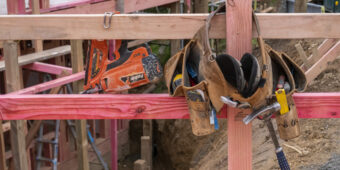Minor variations better defined
27 Nov 2024, Building and housing, LBP & Regulation, Prove Your Know How

New and amended regulations came into force on 30 September to better clarify a ‘minor variation’ when it comes to amending a building consent and a ‘minor customisation’ when it comes to a MultiProof
The Government made this change in August 2024. The changes address some of the recommendations in the Commerce Commissioner’s market study into residential building supplies related to product substitution and variations.
Minor vs major
After a project gets a building consent and begins, it is possible that some building products specified in the plans are not available. In this situation, you can make a change to your consented plan without impacting the consent, as long as the change is minor and does not affect compliance with the Building Code. This is known as a ‘minor variation’ for building projects and a ‘minor customisation’ when it is applied to a MultiProof.
Building consent authorities (BCAs) will still assess changes to ensure the building will comply with the Building Code but people won’t need to submit an amendment for a building consent for minor, straightforward product or design changes.
The problem comes when there is disagreement (usually between a builder or designer and a BCA) about whether a change is ‘minor’, or whether it needs to be dealt with under the ‘major variation’ rules, which require a building consent to be re-submitted.
The difference between a minor and major variation can be extensive in terms of time and cost involved, so it is important that all parties can agree on the scope of the variation.
A closer look at the clarification
Minor variations are covered by the Building (Minor Variations) Regulations 2009, which forms part of the Building Act 2004. Under the change, these regulations have had three new parts added to make them clearer:
The substitution of a comparable product is a minor variation if—
A. The products achieve an equivalent level of performance, having regard to their design, installation, intended use, and maintenance; and
B. It is not likely to affect the compliance of other parts of the building work with the building code; and
C. The consequences of a building failure due to the product substitution would not be significantly worse than a building failure caused by the failure of the original product.
These sections are additional to the current minor variation definition, which simply says that a variation must not ‘deviate significantly’ from the original plans and specifications.
Planning for potential variations in advance
Building consent application forms have been changed to allow builders and designers to specify alternative products in advance. This is optional and will allow you to specify comparable building products in advance so an alternative will be pre-approved and ready to go without a variation needed, if needed.
This allows for improved efficiency in the building consent process and encourages competition for building products – especially around supply and availability.
Minor customisations for MultiProof
For Licensed Building Practitioners (LBPs) designing MultiProof projects involving restricted building work, the regulation changes also impact ‘minor customisations’. MultiProof enables fast-tracked building consents for pre-approved building designs. The inclusion of a definition for minor customisation now gives homeowners and builders some flexibility to make personal choices about a build without sacrificing the benefit of a pre-approved building design.
The bigger picture
Updating the regulations around the definition of a minor variation may help to speed up consenting and improve efficiency. Other changes already announced in this space include:
• Mandating the acceptance and use of overseas building products.
• Increasing the uptake of remote virtual inspections.
• Reducing the cost of the building levy.
• Improving the monitoring of the building consent system, including publishing data quarterly.
This article is an excerpt from Codewords Issue 121. Reading Codewords articles that are relevant to your licence class is a mandatory requirement for Licensed Building Practitioners. These questions can be answered through the LBP portal, online on the Under Construction website or recorded on the magazine, then provided at the time of renewal.
Register to earn LBP Points Sign in
4 Comments
Leave a Reply
You must be logged in to post a comment.




Great quiz
great quiz
great quiz
great quiz